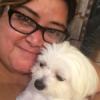Search the Community
Showing results for 'Yogurt'.
Found 17,501 results
-


3week full liqud post op diet
Goodnurseg replied to Goodnurseg's topic in POST-Operation Weight Loss Surgery Q&A
Funny how our diets are all different. I CAN'T have puddings or yogurt on my full liquid diet. I can after 3 weeks. I was told my liquids must flow easily through a strainer. -


Any August 2019 people out there?
mr.sean replied to big_ange's topic in PRE-Operation Weight Loss Surgery Q&A
Wow that sounds like me in the first 2-3 weeks, not 3 months. By 4-5 weeks I could eat a yogurt in a few minutes. I think it's a good thing though? You'll probably be in the top percentage of weight loss. -
I have done 2 weeks of clear fluids and am now on 2 weeks of full fluids which includes thinned down Greek yogurt, puréed soup and Protein shakes. I was sleeved February 9th. After I finish 2 weeks of full fluids I move on to soft foods for a minimum of 2 weeks and then to solids. It's weird how every surgeon seems to have a different plan of attack for getting back to eating. I think my surgeon works really hard at having us create good habits which helps with our long term success. I agree though I don't care to ever consume broth or Jello again!! Good uck and just try to keep really focused on the process.
-
My date in feb 27th. I started my diet yesterday , protein drink for breakfast and lunch and meal for dinner.. I found myself hungry yesterday after lunch so I had a celery stick and some hummus. Dinner was grilled wings and broccoli. Before deb I got lunch and had yogurt
-


September 12th Sleeve Surgery
bellalulu replied to Jay Mack's topic in PRE-Operation Weight Loss Surgery Q&A
Hi. Im in Florida in Kissimee. And same here all liquids no bars or actual food. So I'm back on it tomorrow since technically I shouldn't have been off of it at all but i am on antibiotics so I had to have some veggies and protein. I'm only allowed one salad or veggies per day and that's it. I can have yogurts or milk w shakes but not both. So it's broth all I want and lots of Fiber supplements and my Vitamins. That's it. I will have another go at it tomorrow for the next days till my surgery. What got me going crazy is that since I am still on insulin I only last half a pound after one whole week of just liquids. So that was very very disheartening. Insulin is like a fat trapper. Lol. Sent from my iPhone using the BariatricPal App -


Food for unplanned air travel at one month out
lauraellen80 replied to lauraellen80's topic in POST-Operation Weight Loss Surgery Q&A
Thanks for the suggestions-- it gives me some ideas. @Menelly--I may try some of those, though I can't do nuts yet. I'm still full on 1/4 cup of food, so I'm sure the cheese and meat would be plenty. I don't think I'm supposed to do Protein bars yet, either. @missheidi47-- Thanks for mentioning the cafeteria. I kinda forgot about that! @BLERDgirl--I'll check out the yogurt things. I'm not sure if I'm allowed to have nut butters yet. I'm going to call my surgeon's office when I land tomorrow, so I'll ask (have to anyway, since I am probably not going to be back for my follow-up appointment on Tuesday.) @VSGAnn2014--Things are just so up in the air with my dad at this point, I don't know when or how much I'll be able to get away from the hospital. And it's about 45 minutes from my parents' house, so I won't be able to just run home and scramble some eggs. As for the Protein shakes, I'm not allowed to do Premier or other ready-to-drink ones. I have baggies with my Protein Powder, and I'm planning to just buy a little bottle of milk when I get thru security to mix one. It wouldn't be a long flight, but at such late notice, I couldn't get a direct flight and have to change planes in Atlanta. -
Before a longer run I usually have overnight oats (1/4 cup oats, 1/3 milk, half a container of yogurt and some peanut butter). That holds me well and gives me good consistent energy
-
Mix it in crystal light for extra Protein. Mix it in Greek yogurt with some Splenda for some extra protein. Mix it with your suger free pudding for extra protein. Mix it with sugar free Jello for extra protein.
-
Crystal light my hubby bought chicken noodle soup that I strained the broth had more flavor s/f/popcycles. I could not have yogurt or pudding or fudge pops. I did have s/f. The second week. I got to add protein shakes(only) then 4 days after that mush mush now I'm on soft food. I'm 3 weeks out.
-
Yes, hang in there I am in week three and I can think of all kinds of things to eat but I won't I love cheetos. I have found that popsicles and pudding and yogurt are my best friends when I have those sweet fits and the cheesy fits. So, just talk yourself thru it and find another out and a healthier craving.
-


Finally
Sassy Sleever ~ RoseLee replied to Sassy Sleever ~ RoseLee's topic in Gastric Sleeve Surgery Forums
Going good so far and I lost 3lbs and i all I have ate sense Sep 30th is popsicles,jello,protein shakes made with 0% milk and yogurt tired the chicken broth it was nasty I did cheat a little today next Friday is my birthday so I brought a very small sugar free vanilla cake my dad and my dog ate most of it -


Dec 31st surgeries - how are you doing 2 months out?
Supervixen116 replied to loridee11's topic in POST-Operation Weight Loss Surgery Q&A
Hi surgery twins! Down 26 lbs. and feeling great! Just cleaned out my closet last night, and as I was trying things on, I couldn't believe how large and baggy things were looking on me! I'm down two sizes, so now I'm not trying to hide under my clothes. It's so weird to me! I'm still trying to figure out my routine of food. I start with coffee with protein shake as my creamer and add a scoop of collagen protein. The bat wings on my arms are getting noticeable, but I was expecting that because I'm 49 and I have no illusions about my lack of elasticity. I do a piece of cheese or yogurt for morning snack. A green drink (veggies only) with more protein powder for lunch. Afternoon snack is the rest of my protein shake, then dinner is chicken, fish, meatballs, or a sausage. In between all of that is water. I had some bread a couple of weeks ago, and my stomach got super grumbly. This week, I'm going to switch out the juice on a few days for some salads. I've had a little beer (stout only) and a little wine, but I don't feel I need it like I used to pre-op. I had a small piece of pizza last night for the first time, but only got through a few bites. I used to have pizza every Friday night, but like so many other things, I don't miss it and don't care if I ever have it again. Also super weird to me that I feel that way! I'll admit that I wish I was losing more than 1-2 lbs. a week, but I also haven't been this size in a VERY long time! I keep telling myself that slow and steady wins the race! I'm walking 1.5 miles every day. I belong to a gym, but haven't been in years. That's my next big "add" to my routine. Although, I might quit the gym and start going to yoga. I'm looking for strength/core building, and I like yoga way better than germy machines! I was cold all of the time for the first six weeks, but that seems to be subsiding. Three weeks ago, my face started breaking out with tiny whiteheads, which has never happened before. My energy is good at the beginning of the week, but fades by Friday. Keep on truckin', everyone! -


No restriction, yet there is hornking
GoddessNar posted a topic in POST-Operation Weight Loss Surgery Q&A
I'm allowed to have yogurt in addition to the liquids. At my checkup today the doc said I could also have eggs and vegetables that have been cooked really, really well. I was just banded on Saturday. This morning I tried to eat some yogurt, but a bite of it got stuck. I guess it was too big of a bite. I'm a little swollen since I just had surgery. Now I know what I want to avoid in the future. It hurt! I slimed and I had to vomit up the little bit of yogurt before I got any relief. Ugh. I am definitely not looking forward to any more episodes like that. -
My suggestion is prepare lots of " your foods" I bought 2 dozen small plastic containers and filled them up with jello or jello and yogurt parfait, green pea soup, onion soup, and today making black bean soup and maybe some squash soup and it will be at my fingertips. Yest I took 4 of these and my milkshake on my shopping trip etc and my kids bought me a nice lunch bag- and I ate the same way I would have fed my babies 40 yrs ago, every 3/4 hours. I think preparation helps.
-
I'm on all liquids still, my kids are home eating popcorn by the truck full. It is driving me crazy. I grabed a hand and was eating it til my husband notice hit it out of my hand. He yelled "liquid- not popcorn!" I had to go hide in my room so I won't steal any more popcorn. I want my post op visit to be soon then it is 1/5 so maybe get a fill. , scared that I won't. Can't wait to kids go back to school and stop munching on everything. I wanted to eat thing today I don't even like, just to I could chew I think. I ran to store and got more greek yogurt and ate it very slowly. Hang in there we got this!
-


Post-op diet: how long did you do liquids?
Elisabethsew replied to brittu's topic in LAP-BAND Surgery Forums
I did two weeks of full fluids post-op (pudding, cream soups, yogurt, shakes, etc.) and 2 weeks of soft foods and then moved to solids on week 5. -


i haven't been doing things right..
BetsyB replied to Erin18's topic in POST-Operation Weight Loss Surgery Q&A
I'm not nearly as concerned about calorie level as I am about disordered thinking about food. 1200 calories may not be the right level for you. It's not for me. But that's not what is important. What is important is that you are giving yourself really rigid rules that are completely unnecessary---and possibly harmful. Why only protein shakes, yogurt, and fruits and veggies? Why not solid protein? Or legumes and cheese? When you start assigning "good" and "bad' values to food and eating, I think you can head into trouble pretty quickly. Thinking of meal-skipping as a positive is a red flag for me, too. This is something I'd talk with your doctor about---getting into therapy sooner rather than later can save you all kinds of trouble down the road. -
I am SO struggling with a major sweet tooth. I have always had one so this is nothing new since lap band 6 months ago but goodness gracious me, I hate this, I literally crave somethings sweet all of the time, especially at night. I drink Water and only water with crystal light in it so that has artificial sweetner in it, don't know if that's causing the cravings or not. Can't stand plain water, I'm doomed! I didn't have to give up soda or anything like that I've always drank water. Now back to the sweets, I know some of you are saying don't have it in the house, well, since my untimely and devastating divorce last year I am forced to live with my 73 yr old mom, who is very active by the way but she keeps her candy around and I'm tempted and I cannot ask her to remove it, that would break my heart. I want to succeed on my journey and I know this is a head game with wanting, needing and eating but I think that is why I'm only down 50 lbs at 6 mos, I mean it could be more had my hand not been in the candy jar a time or 2! I know, I know, confession time here. I need help and advice. I love Oikos greek yogurt with the fruit in the bottom of it and that satisfies my sweet tooth and I keep that around all of the time and I do turn to that but when I grab that let's say 10:00 at night my mom nags me "are you eating again"? and this is the only snack I've had for the day along with 3 meals, it makes me feel guilty and a failure. I know she means well and is being my food police and my accountability partner in this journey but dang. Heck, maybe I am wrong for eating a snack like that at 10:00 at night. Help!
-


1 Week Out Gastric Sleeve Plication Surgery
lauraleigh9mm replied to lauraleigh9mm's topic in Gastric Plication Surgery Forum
You know it was funny, I did mine relatively fast, maybe 60 days tops. I feel pretty good about the choice I made for the GST. I LOVE food. I do, but now I will love it in small quantities. I will miss the booze. I did enjoy having a cocktail to relax. I know that I might be able to drink again, but the smell of it still makes me sick. Talk about aversion therapy! Giving up soda has not been any hardship. I am suprised at how little I eat, just a few bites and that is all. My soft food include mini raviolis from the can (I can eat 3 and that fills me up) cottage cheese, yogurt, protein shakes (blah), soup, and I had a bit or cheesy rice the other day. So far no issues, or heartburn. I am taking my vitamins (liquid) each day, making sure I get all my nutrients. -


Food for unplanned air travel at one month out
BLERDgirl replied to lauraellen80's topic in POST-Operation Weight Loss Surgery Q&A
Get some of those yogurt things in squeeze tubes. Just check the labels, they are aimed at kids so they may have a lot of sugar. However they freeze great so they can help keep your other food cold and you can eat them when they thaw. Also get nut butter in the tube packs. I know Target sells single servings of Justin's almond butter like this. get some oatmeal packets as well. You may want to open them and grind them finer and then seal them in zip locks, but this way you can get hot Water and a paper cup and mixed them. -
Every doctor and every person is so different. I had my first fill just 3 1/2 weeks post op and my doctor put in 4 ccs. I felt absolutely nothing. I went back last Thursday (2 weeks later) and he put in another 3 ccs for a total of 7ccs. I felt the difference before I even left the office. I had a hard time that day even getting in my Clear liquids, but woke up the next morning and had thin oatmeal, yogurt for lunch, then a regular dinner. I feel the full "restriction" much quicker but have had no problems. Most people that I have heard from tell me that having 7 ccs, 5 weeks post op is pretty aggressive, but it feels "right" to me. I think it is important to listen to your body and hopefully you can trust you doctor to make judgements that are in your best interest.
-
Hi - I agree with all of the info in the previous posts. Also, please try not to drink anything while eating or it will flush things right through and prevent you from feeling full. Anything that just crumbles up will go through also. You really need to focus on protein items. I know yogurt, cottage cheese, etc. isn't exciting but it stays with you longer. After awhile when you are eating regular foods you will notice that regular food items like potatoes, meats, breads, pasta will def fill you up and possibly get stuck so make sure that you don't forget and take big bites and not chew. The problem is that when you get these items stuck in there drinking will not flush them through, it will make them come back up. It is a learning game and it really takes awhile to learn all of the dos and don'ts. Don't give up!!!
-
Don't forget our old stand by, protein shakes. Frozen greek yogurt is great. Trop 50 + pureed fruit+plain greek yogurt=awesome smoothie
-
Can't wait to try...I made some guacamole this week with half an avocado, some greek yogurt, avocado seasoning (sprinkle from a packet I had), and some lime juice. Ate with brown rice crackers from Archer Farms (Target brand). Divine.
-


Being Honest 3 Wks Post-Op, No Dieting For Me
emily_0192010 replied to Jesusislove's topic in POST-Operation Weight Loss Surgery Q&A
Hello Well first I want to say congrats on being sleeved! I am also slightly envious as at 3 weeks I couldn't eat the way you do! (Not that you eat badly, I simply had no room and could barely get Water down). I am now 6 months out and I do not count anything other than Protein... and even though I only count the obvious. So for example I count my Protein shake or my yogurt (I add in protein) or the cheese stick I eat... but I don't weigh my meat so I can do an exact count. Typically for me I hit either on or over my protein min with the things that are easy to count, so I know that any meat I eat is just contributing to going over my protein min and I don't count it. I will say that I am careful to a point about my carbs. If it interferes with my protein I stay away from them. So I'll have the "stuff" in a sandwich without the bread (bread hurts me anyways). But if we go out for ice cream as a group, I'll get a kids size and stop when i'm full. As long as you meet your protein mins and don't go crazy (like a milkshake every day) you should be fine. Oh, and (this may have been said in previous posts, but i didn't have time to read them all) they make many, many lactose free Protein shakes. You should be able to find one easily. Good luck!















